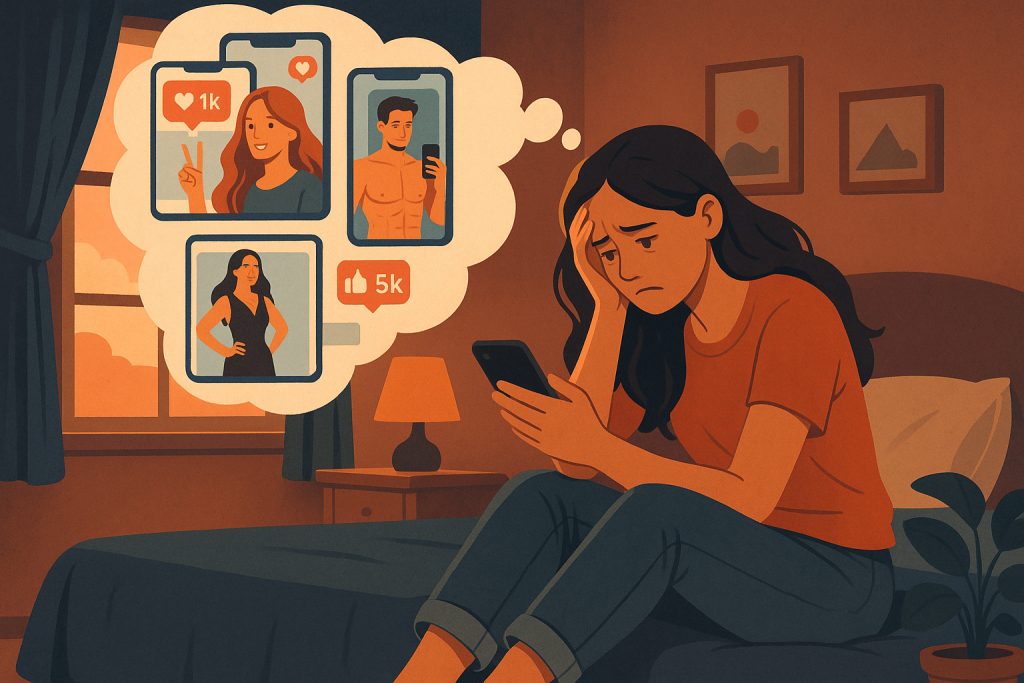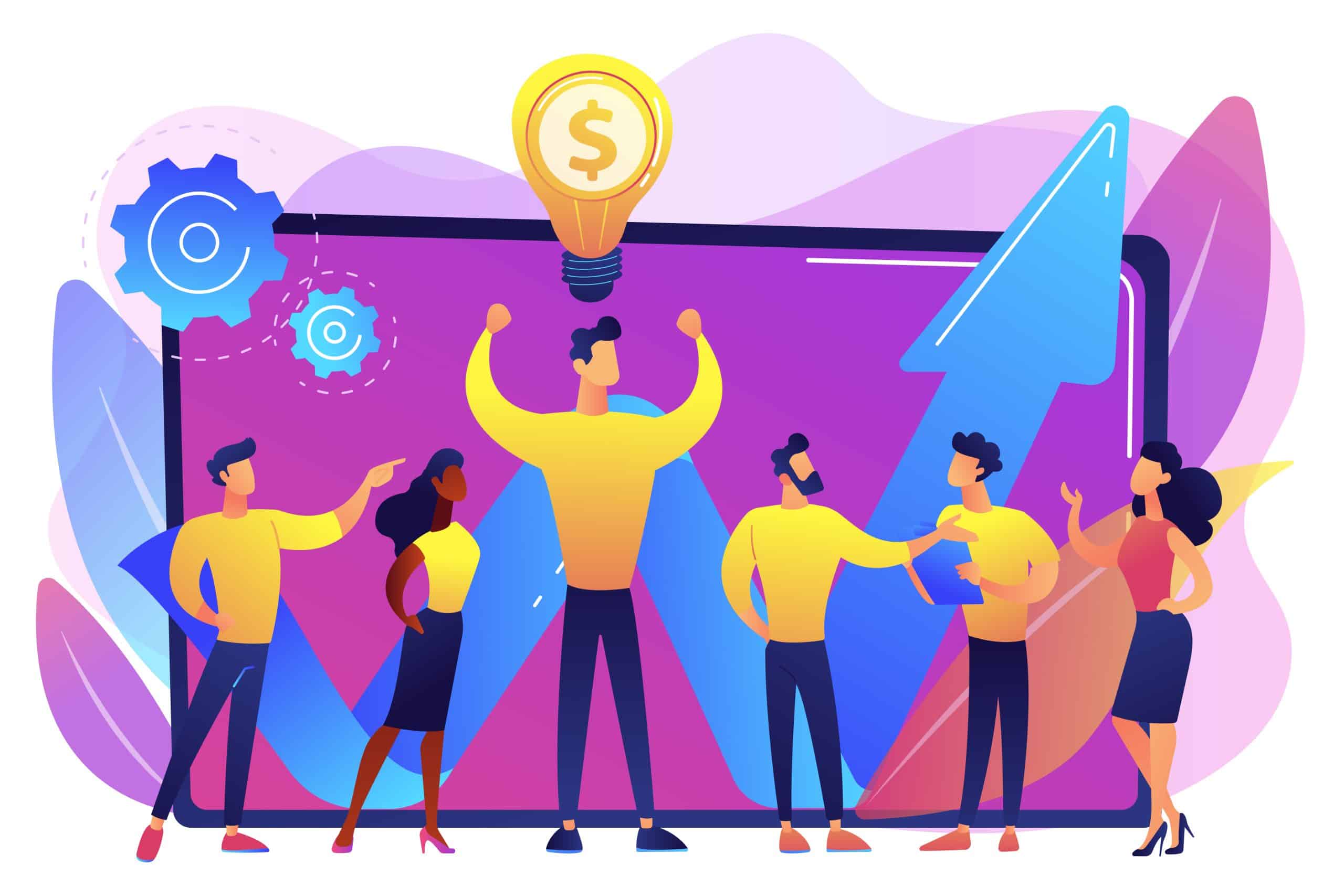In today’s hyper-connected world, social media is no longer just a platform for sharing updates or staying in touch. It has evolved into a lens through which many people perceive and assess their self-worth. From the number of likes to the curated perfection of influencers’ lives, the effects are widespread—and often subtle. What was once a tool for expression has increasingly become a measuring stick for personal value. As these platforms continue to shape human behavior, understanding how they impact our sense of worth is more important than ever.

The Rise of Validation Culture
Social media platforms have created ecosystems where validation is quantified—likes, comments, shares, and followers are now viewed as indicators of personal success and social standing. While these metrics can be harmless for some, they can become addictive for others, driving behaviors rooted in seeking approval rather than authentic expression.
The Feedback Loop
Psychologist B.F. Skinner’s theory of operant conditioning is highly relevant here. Receiving likes and comments triggers dopamine release, a neurotransmitter associated with pleasure and reward. This creates a feedback loop: the more engagement we receive, the more we crave it. According to a 2023 study by the American Psychological Association, over 45% of young adults report feeling anxious when their social media posts receive low engagement (APA, 2023).
Filters, Feeds, and False Realities
Platforms like Instagram and TikTok promote idealized lifestyles—filtered images, exotic locations, luxury fashion, and unattainable body standards. These portrayals, while aesthetically pleasing, often distort reality and create unrealistic comparisons.
The Comparison Trap
Social comparison theory explains how individuals evaluate their own worth based on how they measure up to others. In the age of social media, this can become problematic. Seeing constant images of success, beauty, and happiness leads many users to feel inadequate by comparison. A 2022 report by Pew Research Center found that 59% of teens say social media makes them feel worse about their own lives because of these comparisons (Pew, 2022).
Emerging Trend: The Shift Toward “Authenticity” Content
Interestingly, there’s a growing trend where influencers and everyday users are beginning to post more “real” and unfiltered content. Movements like #NoFilter, #RealMe, and #MentalHealthAwareness aim to challenge the polished norms and foster more honest conversations around self-worth and well-being.
Is It Really Authentic?
Despite the shift, some critics argue that even “authentic” content can be performative—curated vulnerability that still seeks engagement. The monetization of relatability can blur the line between genuine self-expression and strategic branding.
How Social Media Affects Different Age Groups
Adolescents
Teenagers are particularly vulnerable as their identities and self-perceptions are still forming. Studies indicate that excessive use of platforms can lead to heightened anxiety, depression, and body dissatisfaction among teens.
Adults
For adults, social media often intersects with career expectations, parenting comparisons, and lifestyle envy. The pressure to maintain a polished digital presence can negatively impact self-esteem and overall life satisfaction.
Older Adults
While less commonly discussed, older adults using social media can also experience diminished self-worth—especially when comparing their lives to younger, more “digitally active” individuals.
Signs That Social Media Is Harming Your Self-Worth
Recognizing the emotional impact of your digital habits is crucial. Here are a few warning signs:
- Feeling anxious or upset after scrolling through your feed
- Measuring your value based on likes or follower count
- Frequently comparing your appearance, lifestyle, or achievements to others
- Editing photos excessively or avoiding posting altogether due to fear of judgment
- Obsessively checking for engagement or deleting posts that don’t perform well
Practical Tips for Protecting Your Self-Worth
While social media can negatively influence self-perception, mindful usage can help mitigate the damage. Consider implementing the following strategies:
1. Set Screen Time Limits
Use built-in screen time features to monitor and reduce the amount of time spent on apps.
2. Curate Your Feed
Unfollow accounts that trigger negative emotions. Follow creators and communities that promote positivity, education, or creativity.
3. Avoid Posting for Validation
Before posting, ask yourself if you’re sharing because it matters to you—or because you’re seeking approval.
4. Practice Digital Detoxes
Take regular breaks from platforms to recalibrate and reconnect with offline experiences and relationships.
5. Engage in Real-Life Interactions
Strengthen relationships in the real world to provide balance and grounding.
The Role of Tech Companies and Policy
With growing public concern, some platforms are experimenting with hiding like counts, offering wellness check-ins, or integrating usage reminders. These features, while a step in the right direction, place the burden on users to self-regulate. Experts argue that systemic changes—such as stricter regulations on algorithmic design and mental health disclosures—may be necessary to truly safeguard users’ well-being.
Conclusion: Reclaiming Your Narrative
In an age where social media plays a central role in shaping identity and self-worth, it’s crucial to approach these platforms with intention. The curated lives we see online are not full pictures of reality, and our value cannot be reduced to metrics or digital personas. Building a healthy relationship with technology starts by understanding its influence and taking conscious steps to engage with it on your own terms.
References:
- American Psychological Association. (2023). Social Media Use and Mental Health in Young Adults. https://www.apa.org/news/press/releases/stress/2023/social-media-mental-health
- Pew Research Center. (2022). Teens, Social Media and Technology. https://www.pewresearch.org/internet/2022/teens-social-media-and-technology/
- Andreassen, C. S., Pallesen, S., & Griffiths, M. D. (2017). The Relationship Between Addictive Use of Social Media, Narcissism, and Self-Esteem: Findings from a Large National Survey. Addictive Behaviors, 64, 287-293. https://doi.org/10.1016/j.addbeh.2016.03.006






